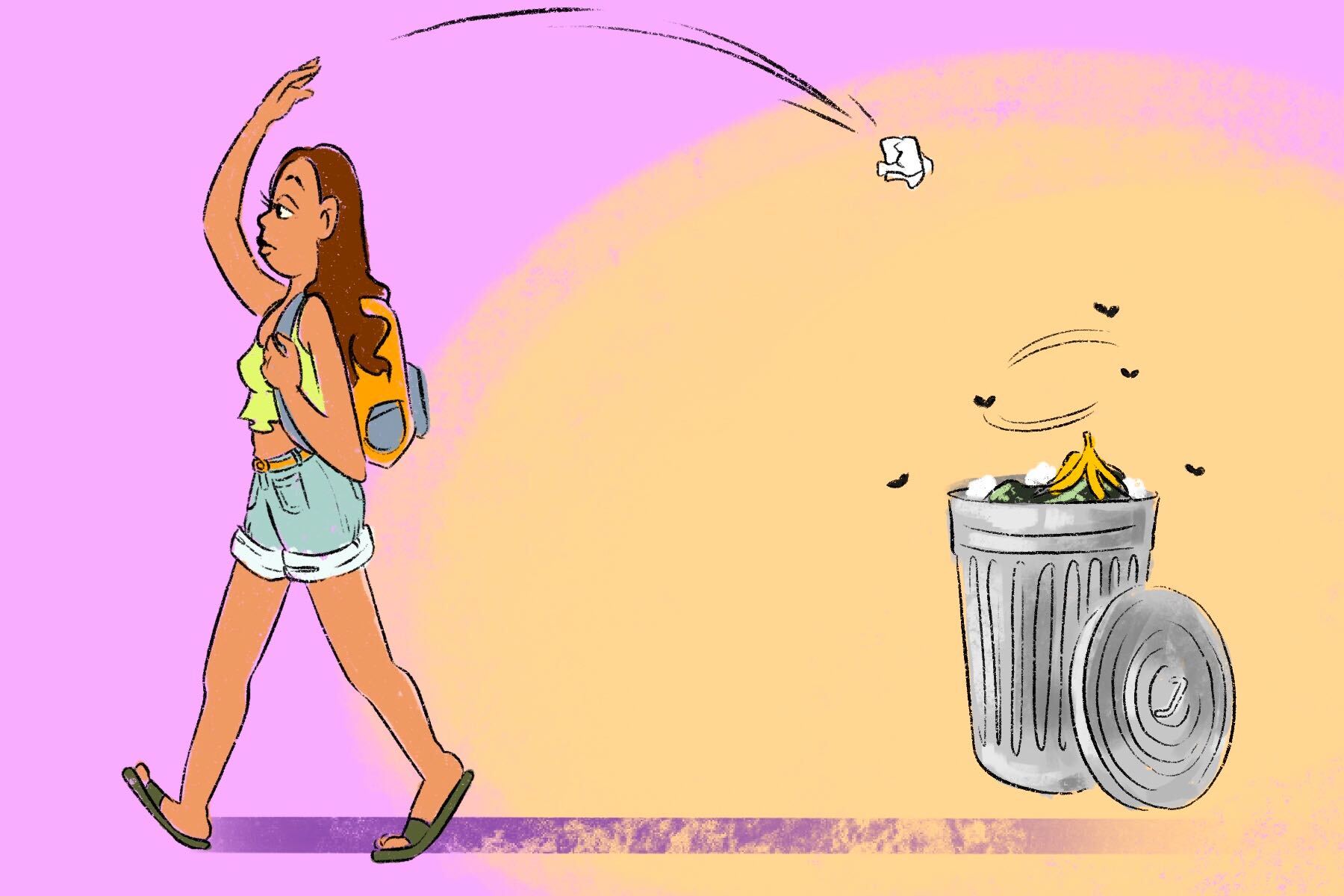When I was in college, I wondered how some people could walk around with the tiniest backpacks and never stress about school supplies. How could they remain organized and efficient? What was their secret? Their secret is this: They realized that it isn’t necessary to carry around 10 notebooks, a planner, a stapler, four binders and each paper that every professor had ever given them to be a great student.
During my college freshman orientation, no one was around to stop me from buying five different binders, 10 different notebooks and a box of 100 mechanical pencils. But I’m here to tell you that you don’t need very much in terms of school supplies to pass with flying colors in a college environment. I was also a bit slow to embrace the emerging digital tools that were cheaper and more efficient than anything I could purchase at OfficeMax. It took me years to realize that I didn’t need half of what I was carrying around. The process of buying school supplies is often fueled by a readiness, an eagerness to get started. In this spirit, a customizable planner and a hearty pack of highlighters can look enticing, but you can be the person who knows exactly what you need (and don’t need) from the outset. So, in order to lighten the burden on both your back and your wallet, here are some suggestions as to what you probably don’t need.
A huge volume of pencils (and any other writing utensil)
When I went out and bought a giant collection of mechanical pencils, what I didn’t know is that pens would swiftly become my writing utensil of choice. I believe this is true for the majority of college students; the ease of note-taking with ink is unmatchable. Erasable pens may be the best option for those who don’t like to preserve note-taking imperfections. For the majority of college students, I think it is fair to say that only a few pencils will ever be necessary. Pencils will always take the backseat except on major exams.
In terms of quantity and quality, this is really up to the individual. Some people are extremely picky about their writing utensils and others will carry around the free pen they picked up at their bank or pharmacy (which usually work extremely well). It also depends on the rate at which you lose or break your pens, so this is really up to your discretion. What worked for me was to have a few quality pens, with the majority in darker colors and a few in lighter accent colors for more exciting note-taking. If underlining isn’t your thing, a few highlighters might be a good addition. In general, less is probably better in this category.
Physical textbooks
Of all school supplies, textbooks may be the biggest money trap. The era of lugging around huge textbooks is coming to an end, and rented eBooks are usually the cheapest option. Instead of spending money on pristine physical textbooks, it might be better to consider going digital and opting for a pair of blue-light glasses instead.
This is, however, a personal preference. For literature-heavy majors, physical books may be a must. However, for those learning from home, it may be worth it to purchase physical textbooks if you believe that you will reference them later down the line.
That one book that your professor said was “optional”
Anything that is “optional” does not require your purchase. You won’t need it.
A notebook for each subject
Life as a college student is so much easier when you realize that you don’t need more than one, single notebook. You won’t be taking that many notes, and if you do, you can always go out and get another one when the time is right. No need to carry around a separate notebook for each class.
Heavy-duty binders
At most, two or three binders should be sufficient for organizing papers. By the end of my college career, I was using one with dividers for each subject. There are lightweight three-ringed binders available through almost any supplier. As more and more professors are simply uploading all of the necessary paperwork online, binders are becoming less necessary.
Physical planner
At most, all you’ll need is a small notepad for jotting down what you don’t want to forget. Digital planners are beginning to offer much more flexibility and convenience than a physical planner. Although it can be satisfying to take pen to paper to solidify what must be done, carrying around a planner just doesn’t seem necessary anymore. The free app Notion has everything you could wish for in terms of “life organization” in one endless digital space. However, the calendar feature on Notion is not nearly as specific as Google calendar, so using the two apps in tandem may be the best option for time management. Or, you could choose to center your whole life around Google calendar. If you’re someone who is prone to misplacing smaller items like a planner, organizing your life digitally may be something to consider.
Craft or art supplies
Most students won’t be embarking on any kind of crafty projects unless they’re in art school. If art is your personal hobby, then yes, some artistic school supplies may be necessary. I can say that I never used the glue sticks and construction paper that I brought with me for my first semester in college.
Printed readings
Unless you feel the need to write on everything you read, printing your readings might also be unnecessary. It’s also more environmentally friendly to read PDFs in a digital format.
Papers that your professor gave you months ago
Regular clean-outs will probably be necessary as the semester progresses. If you really want to cut down on the physical paperwork, you could go as far as to scan the papers that you believe will be necessary to reference throughout the semester.
Of course, this list is by no means comprehensive, and much of what you will need is up to your personal habits and preferences. There is a lot more information available online that is more specific to different majors and different modes of learning. But what is most essential in terms of learning what you actually need is patience. It doesn’t hurt to wait until the professor releases the final syllabus to print a copy. It’s often advantageous to wait to buy textbooks until it’s clear what you’ll really need. It also requires patience to learn what is right for you, specifically. But you can take steps now to think realistically about the most cost-efficient, clutter-free path toward that diploma.

















